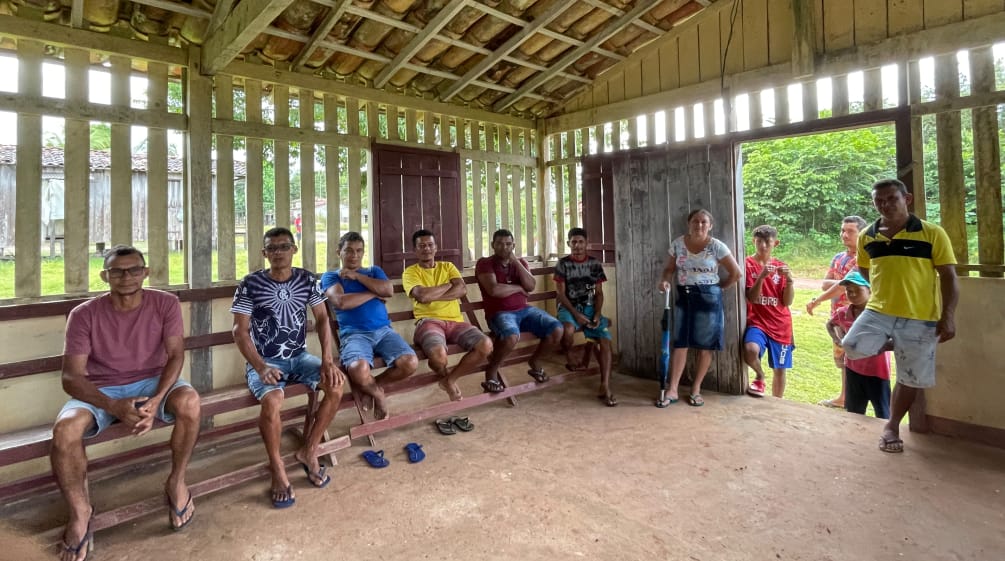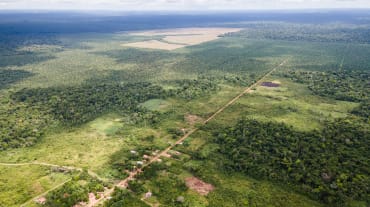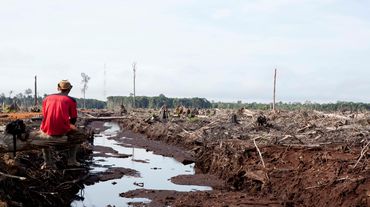Brazil: RSPO certification suspended for Agropalma oil palm plantations
 Local people in the Agropalma plantation areas complain about violence and land grabs (© Karina Iliescu / Global Witness)
Local people in the Agropalma plantation areas complain about violence and land grabs (© Karina Iliescu / Global Witness)
Mar 3, 2023
The RSPO certification of Agropalma oil palm plantations has been suspended, Brazilian media report. The move is apparently due to serious land conflicts between the agribusiness and the authorities and local people.
The newspapers O globo and Ver-o-fato report that the certification of the oil palm plantations of the Agropalma Group in the Brazilian Amazon state of Pará has been suspended due to violations of the criteria of the Roundtable on Sustainable Palm Oil (RSPO).
The certification company IBD has not published the reasons for the suspension, which we see as further evidence of the lack of transparency and credibility of the RSPO label and the involved certifiers.
In connection with the suspension of the label, O Globo reports that Agropalma’s activities are marked by conflicts with traditional communities, which accuse the company of illegal land grabbing and fraud with official land registrations. The conflict has become known as the “Oil Palm War”.
According to O Fato, there had been criticism and calls for the withdrawal of the RSPO seal since it was first granted to Agropalma in 2011. The paper reports in detail on numerous violations of the law by Agropalma related to the 106,000 hectares of land that the group claims for itself. These include various court judgments against Agropalma in connection with illegal land transactions and forged land titles, as well as the court annulment of 57,000 hectares of land claimed by Agropalma due to fraud.
According to O Fato, Agropalma has blocked its own path forward and is now choking on its own scams.
In late October 2022, Rainforest Rescue launched a petition against the company’s land grabbing and violence for “organic, fair and sustainable” palm oil, which has already been signed by more than 67,000 supporters. With our petition, we are calling on ten different label organizations – including the RSPO – to immediately cancel Agropalma’s organic, fair trade and sustainability seals and put an end to label fraud. It also addresses the buyers of Agropalma’s palm oil – 20 corporations in international trade, as well as the food and cosmetics industries – calling on them to end their supply relationships with Agropalma.
Agropalma has told the media that the suspension of certification “would be inappropriate as it does not reflect reality and the rules of the RSPO” and that it has “appealed the suspension”. According to group, the palm oil refineries in Belém and Limeira continue to operate with RSPO certification and are not affected by the suspension.
What’s next?
RSPO certifications are often suspended, only to take effect again a short time later. The process is rarely transparent and is closely linked to business interests.
Certification companies accredited by the RSPO, such as IBD, are responsible for auditing the palm oil companies and issuing seals. The certifiers are commissioned and paid directly by the palm oil companies seeking the seal. The procedure and the financial dependence of the certifiers on the palm oil companies thus undermines their independence and in practice leads to the certifiers being very lax in checking compliance with the already inadequate RSPO standards in order to remain in business.
For years, environmental organizations from all over the world have been calling RSPO-certified palm oil greenwashing and label fraud. In December 2022, 100 organizations from around the world once again called on the palm oil industry to stop its greenwashing.












